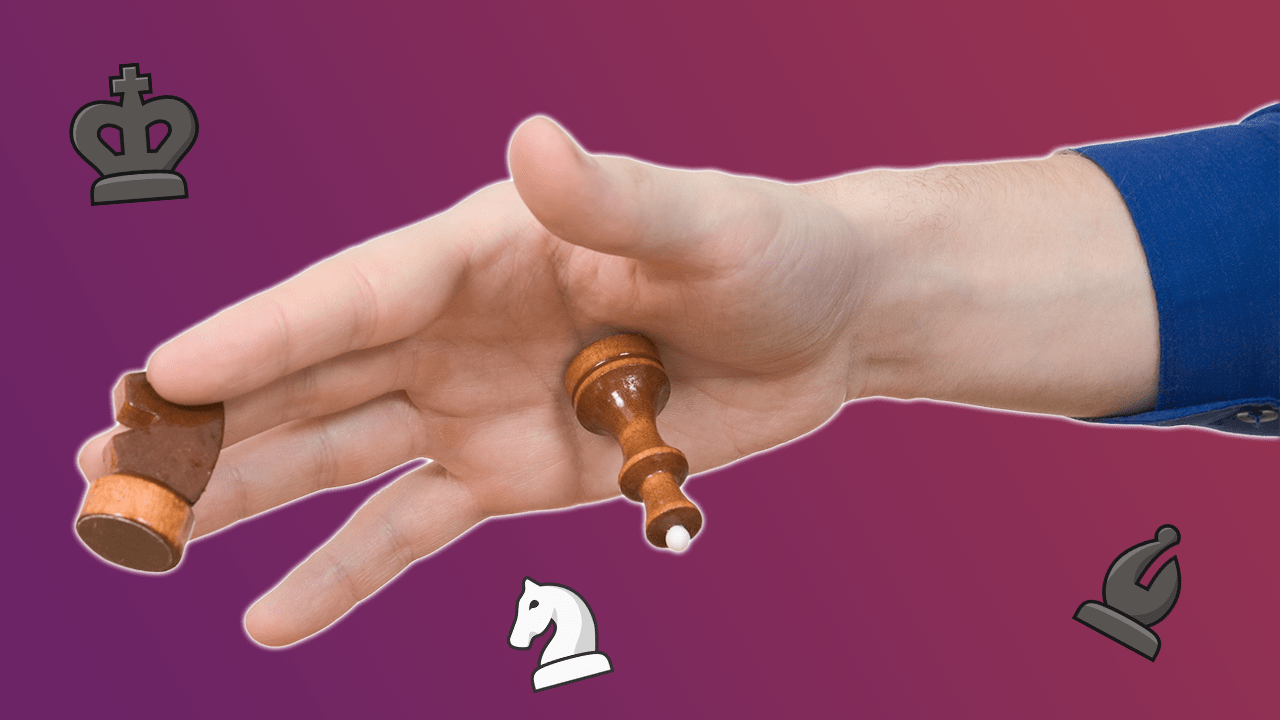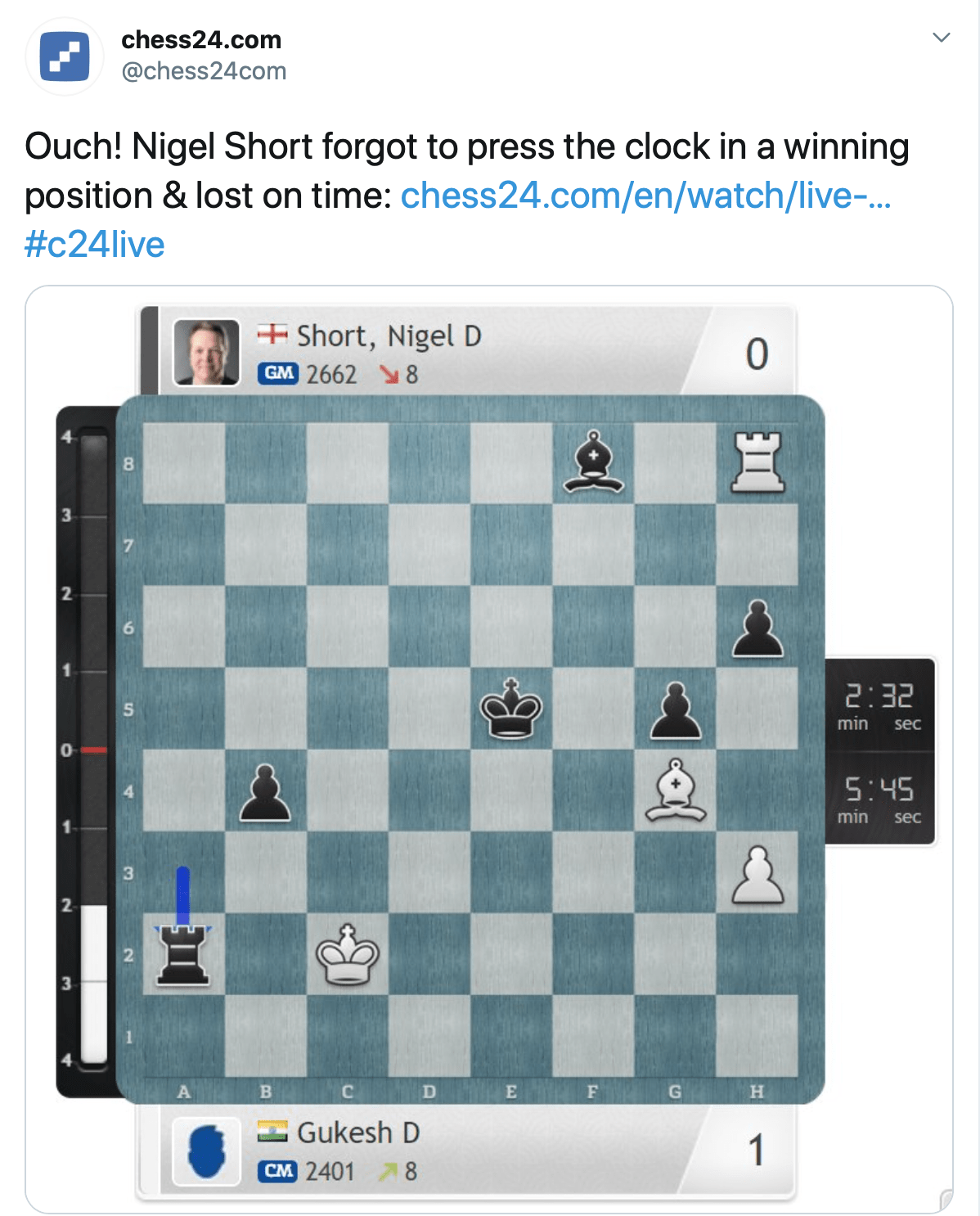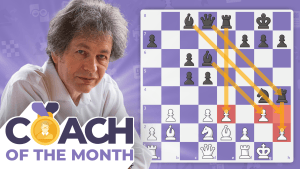
5 Dirty Tricks Grandmasters Use
Grandmasters are the legendary icons that stand atop the chess world—they are our chess heroes. These giants are not only our favorite players but are also... human. Humans make mistakes (both on and off the board), and, as a species, are also considered cunning, clever, and tricky.
By "tricky," I'm not solely referring to tricky tactics or other chess-related ideas that occur on the chessboard. Instead, I refer to some truly dirty off-the-board tricks that likely influenced the result of a game or multiple games. To be fair, some of these tricks have most likely been used by non-GMs as well, but in this article, we will be discussing five dirty tricks used by GMs:
Acting And Theatrics
There are ways, believe it or not, of acting while playing a game of chess. There are many examples of this that I could use, even one of myself when I was fourteen. Instead, I'll shine a light on the chess legend GM Miguel Najdorf. Aside from his most well-known contribution to chess history in the form of one of the most popular chess openings of all time (The Sicilian Najdorf is his namesake.), he will also be remembered as a bit of a comedian.

There is one story of Najdorf pretending to be exasperated in order to obtain a draw from his opponent. In another story, Najdorf was playing an endgame against GM Svetozar Gligoric at the 1952 Olympiad and slapped his forehead after playing 39.Nxd3:

Najdorf's forehead-slapping was meant to portray that he had blundered and overlooked 39...Nxe4, which Gligoric played immediately and then lost a piece! Here is the finish to the game, starting with Najdorf's antics:
According to Gligoric: "Najdorf ... slapped his forehead as if realizing he had just made a 'blunder.' I naively fell into the trap, and, being in time pressure, grabbed the pawn [39...Nxe4??] after which Najdorf grabbed a whole piece. Even the conservative Paul Keres couldn't stop himself from laughing, and perhaps I would have seen the funny side, too - since the bubbly Najdorf's childish pranks were in a way cute - if it hadn't have been me who had just been defeated!"
...perhaps I would have seen the funny side, too - since the bubbly Najdorf's childish pranks were in a way cute - if it hadn't have been me who had just been defeated!
— GM Svetozar Gligoric
Whether you know Najdorf from his world-class play in the 1940s and 1950s or from his line in the Sicilian, you can also know him as a bit of a trickster as well!
Dodging Matches
Dodging world championship matches is something that isn't really an option these days, but it used to be. In the early era of the world championship, the world champion could choose which matches they accepted and which matches they declined. Some world champions seemingly took all of the challenges that they could while others, due to various reasons, played fewer matches as world champion.
In an attempt to fix this issue, the 1922 "London agreement" was signed by most of the world's strongest players. Newly crowned world champion Jose Raul Capablanca created this proposal with several specific stipulations that basically said that the world champion must accept a match if certain conditions were met. These London agreement rules were upheld in the 1927 world championship match where Alexander Alekhine became world champion by stunning the chess world when he defeated Capablanca—a player he had never beaten prior to their world championship match.

Many plans were made for an Alekhine-Capablanca rematch, but these talks always fizzled out for one reason or another with Alekhine staying firm that Capablanca needed to follow the London agreement rules (which seems fair).
However, in 1929 Alekhine played GM Efim Bogoljubov for the world championship match. Bogoljubov did not have to meet the London agreement rules, and he was not on the same level as Capablanca. Alekhine won the 1929 match against Bogoljubov easily.
More talks of the Alekhine-Capablanca rematch occurred but still did not prove fruitful. In 1934, Alekhine again played a match with Bogoljubov (and again the London agreement rules were not upheld), and Alekhine had no problems defeating Bogoljubov a second time. How frustrating would it feel to be in Capablanca's shoes during this time? Getting dodged would not be pleasant.

In 1935, Alekhine played against GM Max Euwe for the world championship. Do you think the London agreement rules were in place? Nope. However, a surprise happened: Alekhine was defeated. In the 1937 Euwe-Alekhine rematch (also not abiding by the London agreement rules), Alekhine convincingly won. He would remain world champion until his death in 1946, holding the second-longest reign of any world champion (17 years) despite never giving Capablanca a rematch.
Both Alekhine and Capablanca are considered to be among the top 10 greatest players of all time and are chess legends without a doubt. Having said that, it definitely seems like Alekhine dodged Capablanca after 1930—which, to me, is just plain dirty.
Clock Shenanigans
I would guess that the vast majority of tournament players reading this have been on one side or the other of the following common occurrence: a player makes a move and forgets to press their clock. Most of the time, the opponent of the player who forgot to press their clock gives a gentle reminder to press the clock, or gestures towards the clock—this is the courteous thing to do.
However, there are many stories of players not choosing the courteous route, and instead, pretend to "think" while their opponent's time ticks down. Forgetting to press your clock can happen to anyone, including the legendary GM Garry Kasparov.

In the second game of the 1987 world championship match, Kasparov forgot to press his clock for almost three minutes while his opponent, GM Anatoly Karpov, sat thinking. By the time Kasparov pressed the clock, he had one minute left to make the remaining 14 moves before the time control.
Kasparov ended up losing the game, but to be fair, he was already very low on time and in a very difficult position. Despite playing according to the rules (It is nobody's job but the player, themself, to press their clock.), what do you think of Karpov's choice to not remind Kasparpov to press the clock?
Kasparov is certainly not the only player to forget to press their clock and lose. Former world championship challenger, GM Nigel Short, forgot to press his clock and flagged in 2018:

What would you do if a GM like Short or Kasparov forgot to press their clock against you and was low on time? Would you do the courteous deed and remind them, or would you see this as your only chance of ever defeating a GM and simply "forget" to remind them to press the clock?
Subversion
There are many tales of subversion in chess history. Stories of taking a grandmaster's second out for drinks and getting them intoxicated so they can't help during adjournments, leaked preparation, team members allegedly giving information to the other camp—there are many examples. In the 1986 Kasparov-Karpov world championship match, Kasparov fired a team member, GM Evgeny Vladimirov, after losing three games in a row. Kasparov accused Vladimirov of giving information to Karpov's camp (though this was never proven).
In 2018, GM Fabiano Caruana's opening preparation was "accidentally" uploaded to Youtube mere hours before his fourth game in the world championship match with GM Magnus Carlsen. Although the upload wasn't live for very long, it was up long enough for Carlsen's team to catch a glimpse. The details of how this unfortunate accident occurred are still unknown.

The 1978 world championship match between Karpov and GM Viktor Korchnoi was a great battle on the board, but the strange happenings away from the board surrounding this match are just as noteworthy. Korchnoi had defected from the Soviet Union, who didn't take kindly to their world championship title being threatened by a defector.
Korchnoi's family was stuck in the Soviet Union, Korchnoi had strange mystics as part of his entourage, and Korchnoi accused Karpov's team of sending him secret messages in his yogurt during the games—yes, you read that correctly.
Korchnoi's claim that Karpov's team could send signals or codes through what type of yogurt Karpov was given was not ignored. After the complaint, Karpov was required to inform the chief arbiter before the game if he wanted to change the flavor of his yogurt or the time that he received his yogurt. If you ask me, messing with a man's yogurt in the world championship match is dirty!
There is an wonderful documentary about this fantastic world championship match titled Closing Gambit that should be viewed by all fans (above the age of 12, or so).
Hiding A Piece
I don't mean to single out GM Bator Sambuev, the three-time Canadian champion, but an incident involving him and IM Nikolay Noritsyn is the most recent example that I could find of a player hiding a piece needed for promotion by his opponent. In the blitz playoff for the 2017 Canadian Championship, Noritsyn was in a winning position and about to promote a pawn, when this happened:
As you can see in the video, Sambuev had been holding the black queen that Noritisyn needed in order to promote properly but then released it once the arbiter paused the game.
When Noritsyn promoted and could not find a queen, he did what countless players (myself included) have done in casual blitz games when promoting: He grabbed a rook and flipped it upside down after promoting, which is a universal sign of a queen. Unfortunately, the arbiters stated that the promotion was to a rook instead of a queen, and Noritsyn lost the game that he was clearly leading.

Sambuev denies that he held the black queen on purpose, but he also could have interceded and told the arbiter that he was holding the queen, right? If I was holding the queen unintentionally in that situation, I'd have said something to the arbiter or tournament director.
Do I think Sambuev intentionally hid the queen? My favorite quote from the show Futurama comes to mind: "All I know is that my gut says 'maybe'."
If Sambuev did intentionally hold the queen, then only one word comes to my mind: dirty.
Conclusion
All of these dirty tricks performed by grandmasters share one thing in common: none of them can be performed on Chess.com! Your opponents can't hide your captured pieces, they can't pretend to blunder (at least that you'd see), nobody will be getting dodged for a world championship match, and none of the above-mentioned clock shenanigans can be used against you.
I hope you enjoyed this stroll through chess history and were amused by some of these dirty tricks. Which trick do you think is the dirtiest? Is there a dirty trick that isn't on this list? Let us know in the comments below!






